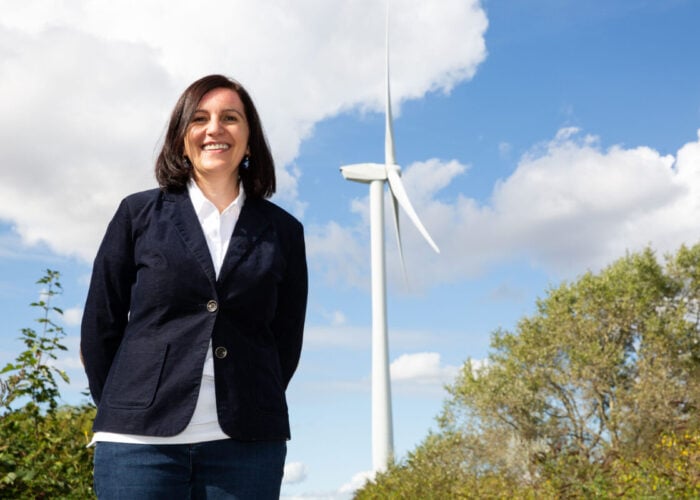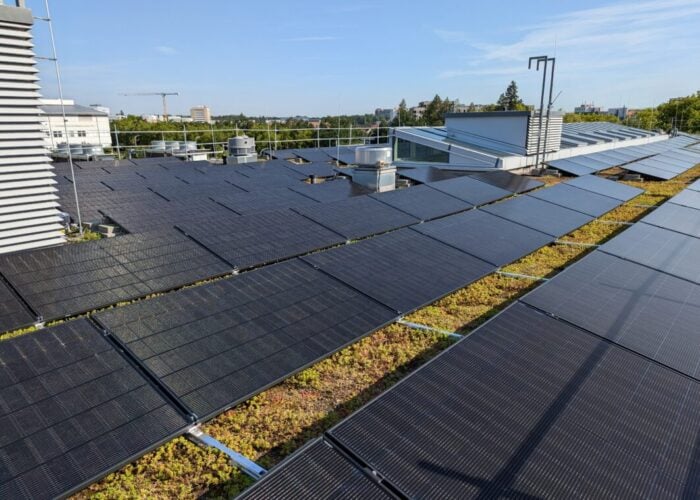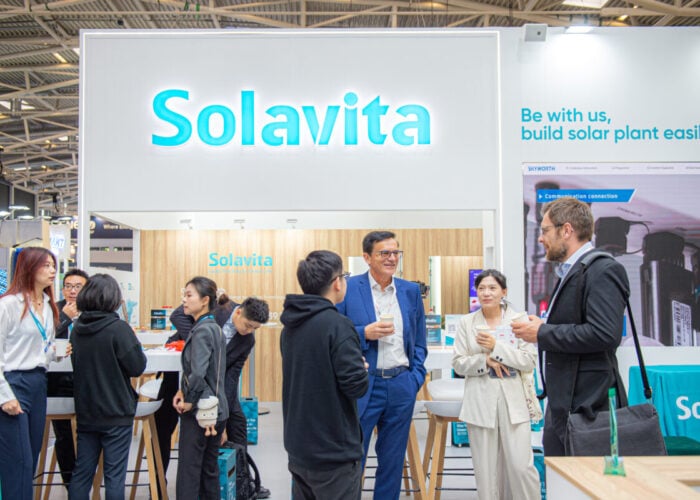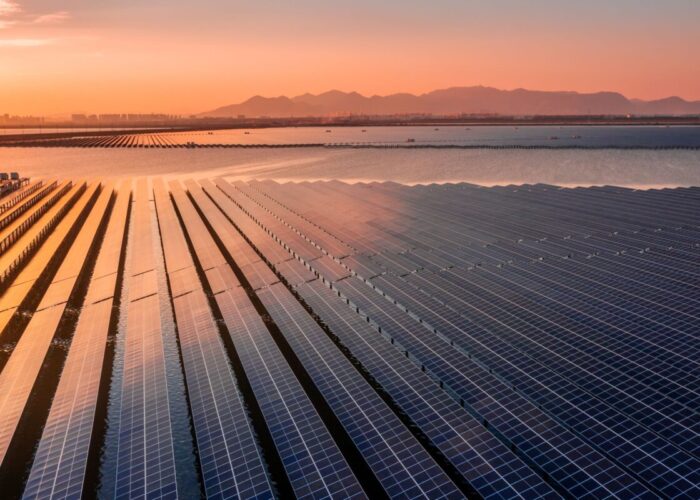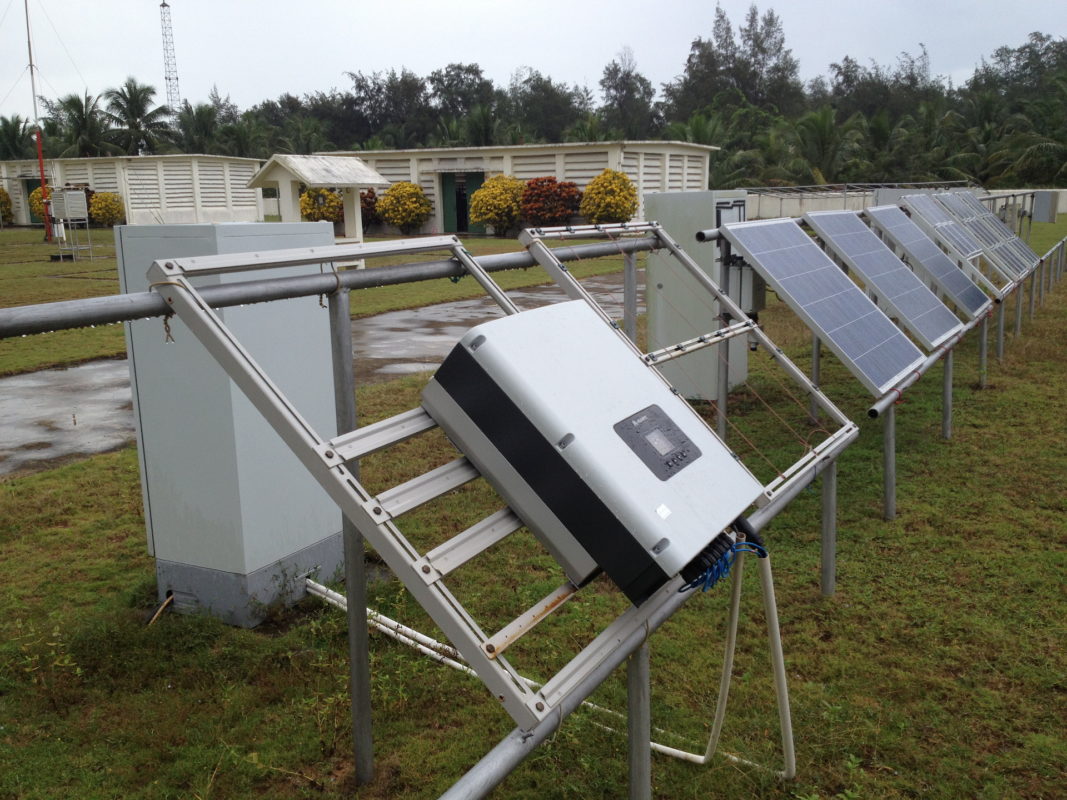
PV Evolution Labs (PVEL) has released the results of the very first independent reliability testing of PV inverters, which included thirty-five different inverter models, including microinverters and power optimisers, produced by 12 different inverter manufacturers.
The PV Inverter Scorecard report comes on the back of its well-known and respected PV Module Scorecard and follows similar rigorous reliability and performance tests, highlighting the ‘Top Performers’ (three) in each test category either by the top three scorers of the test population or the top percentile of the range of results, according to PVEL.
Unlock unlimited access for 12 whole months of distinctive global analysis
Photovoltaics International is now included.
- Regular insight and analysis of the industry’s biggest developments
- In-depth interviews with the industry’s leading figures
- Unlimited digital access to the PV Tech Power journal catalogue
- Unlimited digital access to the Photovoltaics International journal catalogue
- Access to more than 1,000 technical papers
- Discounts on Solar Media’s portfolio of events, in-person and virtual
The Scorecard also summarizes test reports from the PVEL Inverter Product Qualification Program (PQP), a program established by PVEL back in 2014, to support downstream project developers, financiers and other industry stakeholders, due to the then dependence of product selection by brand, warranties and certification.
PVEL noted the findings in the report matched with various independent field studies over the years that have flagged PV inverters as being the leading cause of maintenance calls in PV power plants.
Jenya Meydbray, CEO of PVEL said, “The profitability of solar PV projects depends on inverter reliability. When inverters fail, financial losses from reduced energy yield are compounded by ballooning maintenance costs – and even successful warranty claims do not fully compensate asset owners.”
“We’ve seen a lot of variation in inverter performance by manufacturer and product type. We rely on the PVEL Inverter PQP to identify the products that are likely to meet our performance and durability expectations,” commented Paul Rybak, Director, Capital Procurement of Pattern Energy.
The first PV Inverter Scorecard highlighted that over 20% of products tested failed Damp Heat and Humidity Freeze tests, indicating vulnerability to early lifetime failure from degradation in common field conditions such as rain and snow. Damp Heat test failures and drops in performance for PV modules have continued to be a problem encountered in PVEL’s module scorecard.
Testing
PVEL also highlighted that one third of products tested failed Arc Fault Testing, which evaluates an inverter’s ability to detect events that could lead to fires and explosions due to unsafe electrical conditions.
All tested products, including those that failed, were certified by IEC and/or UL, according to PVEL.
In the Passive Chamber tests, only two companies were awarded Top Performer’s, Delta’s single phase string inverter M8-TL-US and SMA Solar’s SB7.7-ISP-US-40, another single phase string inverter.
Under the Passive Chamber test, which expands on the PV module IEC 61215 test standard, inverters remain unpowered for a damp heat test with the temperature held at 85° C and humidity held at 85%. In the thermal cycling test, the temperature is cycled between -40 °C and 85 °C and a humidity freeze test reproduces cycles of 85° C / 85% humidity and -40 °C.
In the Thermal Performance tests that include powered thermal cycling, high temperature operation and low temperature operation, which are intended to push the limits of inverters ratings from manufacturers. PVEL noted in the report that its PQP tests observed individual components operating past the temperature limits set by the manufacturer, while PVEL noted that not all inverter manufacturers have designs that effectively protect individual internal components.
PVEL highlighted an example of an inverter that failed 30% through the test sequence with an inability to return to operation.
Top Performers
Three different companies products were Top Performers in the Powered Thermal Cycling category, which included Delta’s single phase string inverter M8-TL-US, Schneider’s Conext CL-60A string inverter and SMA Solar’s SB7.7-ISP-US-40. PVEL highlighted an example of an inverter that failed 30% through the test sequence with an inability to return to operation.
In the High Temperature Operation category, three different companies products were Top Performers, Delta M8-TL-US, Fronius’ Symo 24.0-3, a transformerless three-phase string inverter and Huawei’s SUN2000-11.4KTL-US string inverter.
There were two Top Performers in the Low Temperature Operation test, which included the Delta Solivia 3.8 TL and the Huawei SUN2000-11.4KTL-US.
In the Performance efficiency test category, which analyses MPPT efficiency, conversion efficiency and energy harvest, PVEL noted the tests set out to demonstrate whether or not an inverter can actually perform as expected based on product datasheets when deployed in the field.
Three different companies products were Top Performers in the MPPT efficiency test, which included Delta’s M8-TL-US, Huawei’s SUN2000-30KTL-US and Schneider’s Conext CL-60A string inverter. PVEL noted that Top Performers in this test sequence had a 98-99% response rate for all three test conditions.
Top Performers in the conversion efficiency tests were Huawei’s SUN2000-30KTL-US and SUN2000-375W-USP0, accompanied by Schneider’s Context CL-60A.
In the energy harvest tests, Top Performers were Huawei’s SUN2000-28KTL and SUN2000-30KTL-US, also accompanied by Schneider’s Context CL-60A.
In the Performance operational test, which includes operational envelope and transient response, PVEL noted that ‘inverters that have wide DC input ranges can support a more diverse set of possible stringing configurations, allowing flexibility for the designer or installer of the system.
PVEL only scored Delta’s M80U inverter in AC operational envelope tests and the same inverter in the DC operational envelope category with Schneider’s Conext CL 25000NA inverter.
In the transient response test, Top Performer status was given to Delta’s M8-TL-US, Fronius’ Symo 24.0-3 and Huawei’s SUN2000-11.4KTL-US inverter.
PVEL noted that in operational testing products were compliant with certification testing, yet may have narrower operational windows than actually stated. The result was seeing nuisance trip events, de-rated power output and loss of total energy production.
In the field testing category, PVEL said that the PQP determined whether an inverter would operate safely and continuously in real-world conditions. The tests include a ground and arc fault tests and a 30-day runtime in operation.
The three TOP performers in the ground and arc fault tests were Delta’s M8 TL-US and Solivia 3.8 TL inverters, as well as Fronius’ Symo 24.0-3 inverter.
In the 30-day runtime tests, only two companies products were given Top Performer accreditation, which included Huawei’s Sun2000-11.4KTL-US an SMA Solar’s SB7.7-1SP-US-40.
Summary
In summary, the three most cited Top Performer companies were Delta with 10, Huawei with 9 and Schneider with 5.
On a product basis, the three most cited Top Performer’s were Delta’s M8 TL-US inverter with 4 accreditations, Huawei’s Sun2000-11.4KTL-US also with 4 and Fronius’ Symo 24.0-3 with 3 accreditations.
“We hope our first PV Inverter Scorecard proves as valuable to the downstream solar industry as our widely recognized PV Module Reliability Scorecards,” noted Tara Doyle, Chief Commercial Officer of PVEL. “As one of the first labs to test extended inverter reliability and performance specifically for the downstream market, we are pleased to lead the effort in sharing important best practices with the broader industry.”
The 2019 PV Inverter Scorecard is available as a free download at www.pvel.com/inverter-scorecard.



